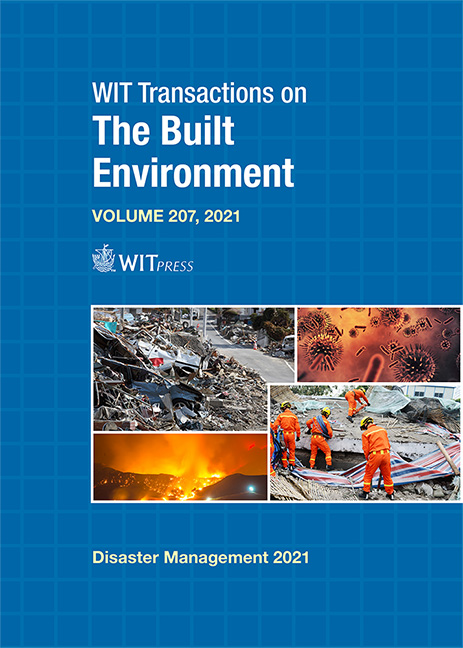BUILDING RESILIENT COALITIONS: HEALTH AND MEDICAL RESPONSE THROUGH COVID-19 CONCURRENT EVENTS
Price
Free (open access)
Transaction
Volume
207
Pages
19
Page Range
27 - 45
Published
2022
Paper DOI
10.2495/DMAN210031
Copyright
Author(s)
LORI UPTON, ADAM LEE, MAGDALENA ANNA DENHAM
Abstract
This study examines the role of the non-profit organization SouthEast Regional Advisory Council (SETRAC) in capacity-building among healthcare institutions in the largest medical center in the world in the Houston, Texas region. Specifically, using conceptual resilience model accessed by organizations as they respond to crisis or disruption, we assess the linking dimension of SETRAC in healthcare delivery during COVID-19 concurrent disasters through supporting and coordinating services to healthcare institutions amid the pandemic. Specifically, the assessment comprises two critical events in the region concurrent to the COVID-19 pandemic – Hurricane Laura in fall 2020 and Winter Storm Uri in spring 2021. Our inquiry adopts the classical content analysis suitable for analyzing large textual data of 802 open-ended after-action report (AAR) surveys conducted among healthcare system entities in the region of which 403 collected post Hurricane Laura and 399 AARs collected after the Winter Storm Uri. Our findings center on discussion of three categories of capabilities: (a) established capabilities; (b) developing capabilities; and (c) unmet capabilities. The purpose of the study is to illuminate the role of a non-profit coalition in enhancing and sustaining a decentralized network of healthcare providers in the management of increasingly complex and compounded disasters and to identify best practices for coordination and collaboration across a range of concurrent hazards and threats.
Keywords
COVID-19 concurrent crises, healthcare coalitions, healthcare disaster management, SETRAC, resiliency, crisis communications, healthcare systems, Hurricane Laura, Winter Storm Uri




